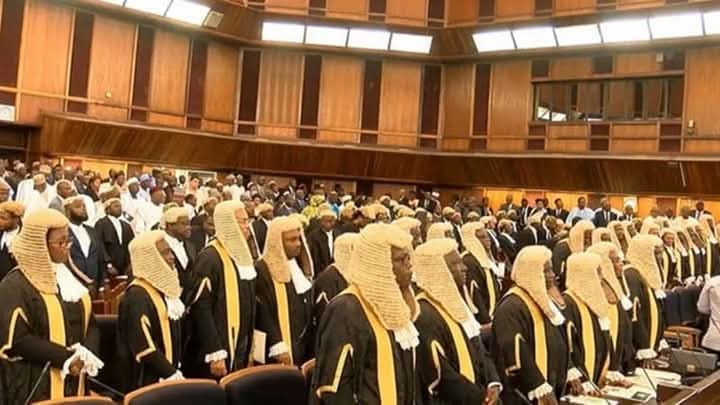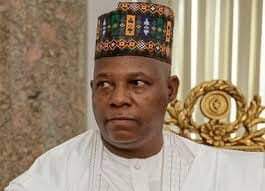Judiciary is the most corrupt institution in Nigeria,according to Nigeria Bureau of Statistics report as Body of Benchers dismisses report
Body of Benchers dismisses NBS rating of judiciary as one of the most corrupt institutions in Nigeria
The Body of Benchers (BoB) in Nigeria has dismissed the data on corruption used by the National Bureau of Statistics (NBS) in rating the judiciary.
The NBS had last month rated Nigeria’s judiciary as one of the most corrupt institutions in the country, using data from various sources to arrive at its rating but the Body of Benchers through its Chairman and legal luminary, Chief Adegboyega Awomolo, SAN, at a public function in Abuja on Monday, queried the findings and conclusions of the NBS.
At the public function attended by the Chief Justice of Nigeria (CJN), Justice Kudirat Kekere-Ekun, the BoB chairman said, “We need not be unduly perturbed by the unjustified, unverified and contentious data of corruption issued on the Nigerian Judiciary by the National Bureau of Statistics. It is unworthy of attention.
“I can attest to the fact that in the Nigerian judiciary are some of the finest characters and our best legal brains on whom no price tag can be attached.
“Our judges and justices are the greatest assets of our nation. We must continue to accord them the highest honour, respect and dignity.
“The image of the judiciary is too important to a democratic society to allow it to be tarnished in any way by any act of impropriety by any members of the Bar or Bencher.
“Now is the time when everyone should be made to account and be responsible for what is attributable to him
“The Body of Benchers urges Judges/Justices to be bold, courageous and focused. Rising from the judiciary introspection there must be a recommitment to the best values of the judiciary as an independent arm of government.
“There must be a commitment where judgments will deliver justice irrespective of whosoever is concerned, where no one will be oppressed and where freedom and liberties of citizens are secured and protected.
“It is the hope of the Chairman and entire members of the Body that this conference will ignite a renewal of wisdom from God, strength and fulfillment to each and every justice of this Court and supporting staffs.
“This Court of Appeal, as the first level of appeal from decisions of the High Courts, all over the Federal Republic of Nigeria offers a great hope for the majority of Nigerians, who are aggrieved by the decisions of the High Courts throughout the Federation.
“This court and the Supreme Court have contributed in every large measures to ensure that Nigeria as a nation enjoys constitutional stability, peace, prosperity, and progress as a country under God since 1999, when democracy fully returned.
“The theme of this year’s conference, ‘Judicial Introspection’, has come at the most appropriate time. It is mete and proper for every institution to retreat and do introspection.
“The society is dynamic; the parliament is dynamic in promulgating laws. Judges are expected to cope with growing trends in technology and advancement in human global behaviour.”
Awomolo added, “Let me remind everyone, the admonition of my Lord, Honourable Justice Kudirat Motonmori Olatokunbo Kekere-Ekun, the Chief Justice of Nigeria, during the opening of the 2024/2025 legal year of the Supreme Court, that the judiciary under her leadership will remain the hope of the advancement of constitutional democracy, which this country has practiced for 25 years and shall continue to be an institution that will not fail or falter in its constitutional responsibilities.
“Every member of the judiciary of this court should benefit from the institutional introspections that begin this week.
“It is the belief of the Body of Benchers that the effect of the introspections will help everyone to freely and sincerely identify areas for improvement, patterns to be rebuilt and areas that need changes.
“It will assist to increase empathy, institutional regulation and skills. It will afford a review of areas where so much stress have been brought on the justices individually and collectively as a court.”




